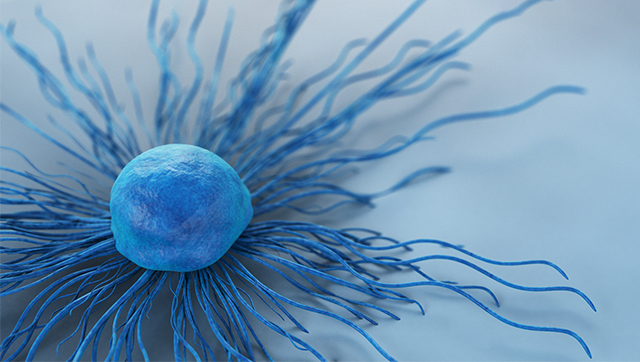Get the Facts on Cervical Cancer Screenings
According to the Centers for Disease Control and Prevention (CDC), Florida ranks No. 4 in incidence rates for cervical cancer. The sunshine state also lags in screening rates for the disease, with only 78% of women between the ages of 21 and 65 having received cervical cancer screening in the past 3 years.
What causes cervical cancer?
Nearly all cases of cervical cancer are caused by Human Papillomavirus (HPV). The CDC estimates that 80% of adult women have been exposed to HPV. Although most women with HPV infections do not develop cervical cancer, regular screening is important to detect infections before cancer can develop.
You may be at risk for cervical cancer if you:
- Have not been screened for cervical cancer within the past 3 to 5 years
- Did not get an HPV vaccine before age 18
- Had an abnormal Pap test or positive HPV test in the past 5-10 years
- Had treatment for cervical precancer anytime in the past 20 years
- Currently smoke
- Have HIV or a weakened immune system
Get screened! Most cervical cancers develop in women who are not screened regularly. They work by finding precancer that can be treated before cancer develops.
- The Pap test – or Pap smear – looks for cell changes on the cervix that could lead to cervical cancer if they go untreated.
- The HPV test can detect the virus that causes these cell changes. HPV testing is better at detecting precancer than Pap testing, so it can be done less often.
When should you get screened and what tests should you undergo?
Ages 21 – 29
- Women should get their first Pap test at age 21.
- If the results are normal, you can wait three years for your next test.
- HPV testing is generally not done in young women because infections are very common at this age, but cancer is rare.
- Women ages 30 to 65 are at the highest risk for cervical cancer. Three different screening options are available:
- Pap test only – If the results are normal, you can wait three years for before your next pap smear.
- HPV test only – If the results are negative, you can wait five years for your next HPV test.
- Combination HPV and Pap tests (co-testing) – If both results are normal, you can wait five years before repeating the tests.
- Women over the age of 65 who have had at least 3 Pap tests or 2 HPV tests in the past 10 years with normal results may stop testing.
- Women who have not been screened regularly, have had recent abnormal results, or were treated for cancer or precancer in the past 20 years, should not stop screening even if they are over 65.
All adolescents should be vaccinated! Vaccination of adolescents can prevent cervical, vaginal, and vulvar cancer and precancer, anal cancer, and genital warts. HPV vaccination can also prevent cancer of the tonsils and tongue that are caused by HPV. HPV vaccination is recommended for all adolescents (boys and girls) ages 9-26.
However, HPV vaccination works only if someone is vaccinated before they are exposed to the virus. HPV vaccination does not treat infections, so it does not work if you have already been exposed to the virus. Adult men and women (ages 27-45) may choose to get vaccinated, but most people have already been exposed to HPV by this age so the vaccine does not work as well in adults.



